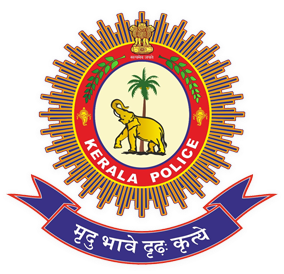Commandant is a title often given to the officer in charge of a military training establishment or academy. This usage is common in English-speaking nations. In some countries it may be a military or police rank. It is also often used to refer to the commander of a military prison or prison camp.
Inspector, also police inspector or inspector of police, is a police rank. The rank or position varies in seniority depending on the organization that uses it.
Assistant superintendent, or assistant superintendent of police (ASP), is a rank that was used by police forces in the British Empire and is still used in many police forces in the Commonwealth. It was usually the lowest rank that could be held by a European officer, most of whom joined the police at this rank. In the 20th century, it was in many territories opened to non-Europeans as well.
Superintendent (Supt) is a rank in the British police and in most English-speaking Commonwealth nations. In many Commonwealth countries, the full version is superintendent of police (SP). The rank is also used in most British Overseas Territories, in many former British colonies, as well as in Portugal and in several former Portuguese colonies. In some countries, such as Italy, the rank of superintendent is a lower rank.
A deputy commissioner is a police, income tax or administrative official in many countries. The rank is commonplace in police forces of Commonwealth countries, usually ranking below the Commissioner.

The West Bengal Police is one of the two police forces of the Indian state of West Bengal. The other being the Kolkata Police, which has a separate jurisdiction across Kolkata.
The Superintendent of Police (SP) is a rank in Indian police forces held by an officer who serves as the head of a rural police district. Other officers of the same rank may lead specialised wings or units. In cities under commissionerate system, an SP and SSP may serve as the Deputy Commissioner of Police (DCP) under the Commissioner of Police. The SP reports directly to the district magistrate (collector), the administrative head of a revenue district, who has general control and direction over police administration. Additionally, an SP sends monthly reports to the Director General of Police (DGP) through the Deputy Inspector General of Police (DIG) and the Inspector General of Police (IGP).

Gazetted officers include all the Indian Police Service officers which are Group A officers of the cadre and all State Police Services officers of and above the rank of Deputy Superintendent of Police. All are arranged in a hierarchical order.
Assistant commissioner or assistant commissioner of police (ACP) is a rank used in various police forces.
A Deputy Inspector General of Police is a high-ranking official position in Police in India, Bangladesh, Kenya, Malaysia, Nepal, Pakistan, Nigeria and Sri Lanka.
Additional Superintendent of Police or Additional Deputy Commissioner of Police, is a rank in Indian police forces. The officer holding this rank can be from the Indian Police Service (IPS) or from respective state police services like the Provincial Police Service (PPS), West Bengal Police Service (W.B.P.S.), Odisha Police Service (O.P.S.), Maharashtra Police Service (M.P.S.), Kerala Police Service (K.P.S.), etc.
The State Police Services (SPS) is an umbrella term for police services under different state governments in India. In India, police is a state subject and each state has its own police service. For example, Maharashtra Police Service (MPS) for Maharashtra Police or Provincial Police Service (PPS) for Uttar Pradesh Police. Its counterpart in the central government is the Indian Police Service (IPS), which is a higher civil service. Recruitments are done through the respective state's Public Service Commission (PSC).

The Andhra Pradesh Police is the law enforcement agency of the state of Andhra Pradesh, India. Public order and police being a state subject in India, the police force is headed by the Director general of police, Ch. D. Tirumala Rao, IPS.

The Madhya Pradesh Police Department is the law enforcement agency for the state of Madhya Pradesh in India.

Jharkhand Police is the law enforcement agency for the state of Jharkhand, India. Jharkhand Police was formed in 2000. Jharkhand Police is headed by Director General of Police and headquartered in Ranchi, Jharkhand. Jharkhand police have 4 levels of Joining. The Top positions are filled by Indian Police Service Officers recruited by the Union Public Service Commission. The Next Level of Recruitment is at Class II Level via D.S.P Rank recruited by the Jharkhand Public Service Commission. Non-Gazetted officers are recruited at the sub inspector level by the Jharkhand Subordinate Service Commission. Other posts are filled by conducting recruitment rallies or direct recruitment examinations. The Jharkhand Police has nearly a Strength of about 149 IPS Officers. Against this sanctioned strength the State has only 100 IPS Officers allotted to it as on 2015 by the Ministry of Home Affairs(MHA). Jharkhand is among the top Indian states for total recruitment. The current DGP of Jharkhand Police is Anurag Gupta.

The Telangana Police, officially known as the, Telangana State Police Department is the law enforcement agency for the state of Telangana in India. It has jurisdiction concurrent with the 33 revenue districts of the state. The police force was created from the remnants of the Andhra Pradesh Police after Telangana state was formed. It is headed by the Director general of police, Dr. Jitender, and headquartered in Hyderabad, Telangana.

The Kerala Police is the law enforcement agency for the Indian state of Kerala. Kerala Police has its headquarters in Thiruvananthapuram, the state capital. The motto of the force is "Mridhu Bhave Dhrida Kruthye" which means "Soft in Temperament, Firm in Action" in Sanskrit. It operates under the Department of Home Affairs, Government of Kerala. The force is headed by the State Police Chief, and the incumbent chief is Shaikh Darvesh Sahib, IPS.

Provincial Police Service, often abbreviated to as PPS, is the state civil service for policing of Uttar Pradesh Police comprising Group A and Group B posts. It is also the feeder service for Indian Police Service in the state.

Commissioners of Police in India are IPS officers who head the police force in a police commissionerate. A police commissionerate can combine several adjoining districts under it. A Police Commissioner may or may not hold certain powers of the executive magistrate, contrary to the Superintendent of Police (SP) or Senior SP (SSP) in charge of a police district who depends on the district magistrate to issue orders. Commissioner of Police (CP) is a post that can be held by an IPS officer of the rank SP and above, depending upon the sanction provided by the respective state government.










